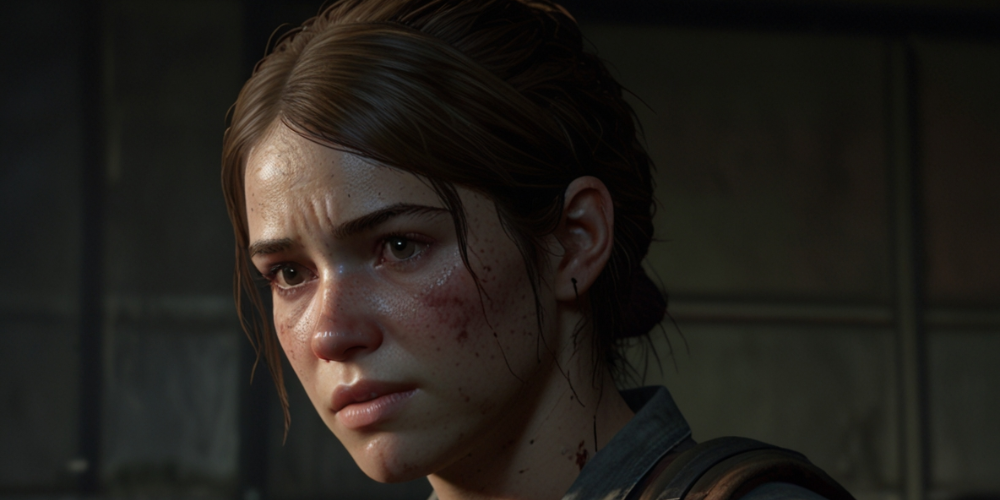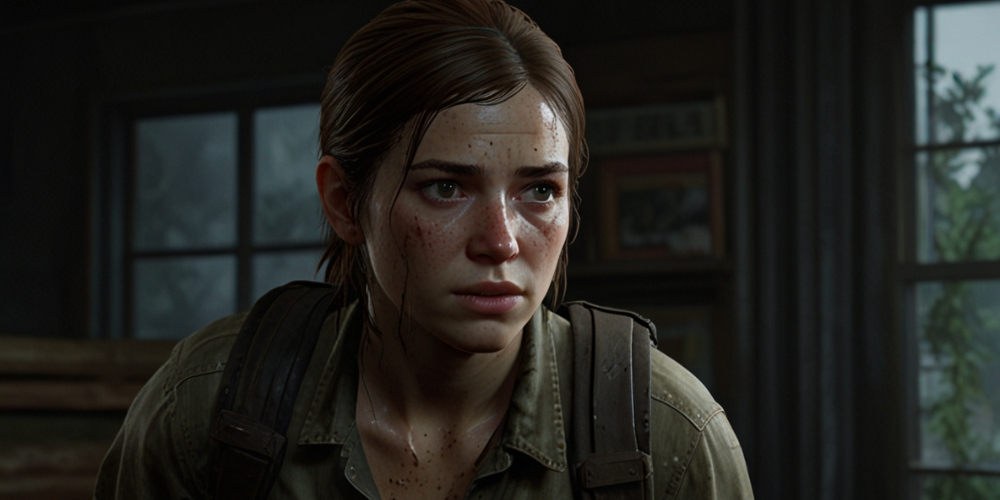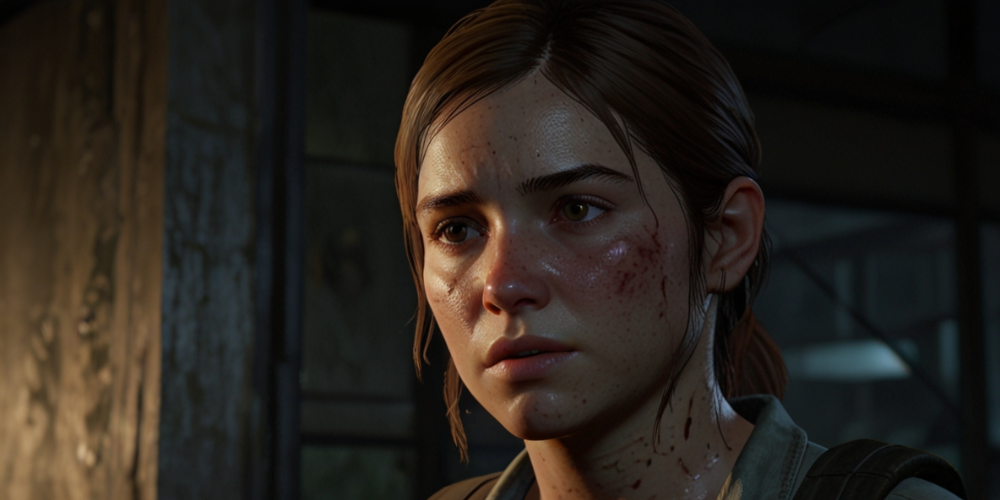The Last of Us Part II - Themes of Revenge and Morality
- Aug 03, 2024
- 905

As I hold the controller in my hands, diving back into the desolate world of The Last of Us Part II, I can feel the weight of each decision that looms over my character, Ellie. The themes woven into this narrative are far from simple; they paint a picture of revenge and morality that’s as complex as the characters themselves. Set in a post-apocalyptic world where danger lurks behind every corner, I find myself constantly questioning the ethics of their choices. Every interaction, every encounter shapes their journey, pulling me deeper into an emotional abyss.
The Cycle of Vengeance
The game thrusts me into a relentless pursuit of vengeance. After the brutal event that triggers Ellie’s quest, I can’t help but feel her fury; it resonates within me. It’s not just about retaliation, but the consuming nature of hatred. As I journey alongside Ellie, her desire for revenge becomes my own. Each enemy I encounter is a target, every moment of triumph tinged with a sense of moral ambiguity. Will this path ultimately lead to fulfillment, or will it deepen the scars that already mar her soul?
The Haunted Memories
Memory plays a significant role in shaping Ellie’s motivations. I find myself revisiting the memories of those she has lost, each flashback a potent reminder of love intertwined with pain. The guilt that follows these recollections complicates my experience. Do I allow her to proceed with her brutal path, or do I hope for a moment of clarity that might steer her away from the abyss? The emotional conflict among these moments is sometimes unbearable; they showcase how deeply intertwined love and hate can become.

The Cost of Revenge
As Ellie hunts down those responsible for her suffering, I am forced to confront what revenge truly demands. In my quest to repel the shadow of loss, I become a participant rather than a mere observer. There’s a stark realization that with each life taken, something sacred within Ellie fades. She becomes increasingly alienated, surrounded by a world that reflects nothing but brutality. I understand that revenge won’t fill the void left behind; it only serves to amplify her internal chaos.
Morality in a Collapsed World
In this world, the definitions of right and wrong are blurred. As I wander through desolate landscapes and encounter rival factions, I start to question the moral compass of every character I meet. Each side believes they are the heroes of their own story. Engaging with these various groups exposes me to their philosophies, and I often find myself sympathizing with characters I shouldn’t. This nuanced portrayal forces me to reckon with the notion that morality is subjective, especially in a realm that defies conventional ethics.
The Role of Empathy
One of the most striking elements of The Last of Us Part II is the exploration of empathy. With each character I encounter, their stories unfold like intricate layers. Even those I’m led to believe are antagonists invoke sympathy, compelling me to consider their motivations. I reflect on Ellie’s journey and the futility of labeling people as simply ‘good’ or ‘bad.’ Each interaction drives home the fragility of humanity and the shared pain that binds us. It becomes increasingly evident that understanding others’ perspectives might be the key to breaking the cycle of retribution.

The Clashing Ideologies
As I navigate through conflicting ideologies, I feel the weight of the choices that define my path. Ellie’s journey intersects with Abby’s, a character who embodies a different perspective on revenge and morality. Abby’s motivations are rooted in loss as well, yet they manifest in ways that challenge me to reconsider the idea of retribution. Their eventual confrontation becomes more than a battle; it’s a clash of beliefs that forces me to reassess who truly embodies justice in this broken world.
The Price of Loyalty
Throughout the game, I witness the effects of loyalty on relationships, especially between Ellie and her closest companions. Ties of friendship and fidelity can both empower and burden, making me question how far one should go in the name of loyalty. As the narrative unfolds, I see how these bonds can lead to devastating choices. The burdens they carry create fissures in their morality, making each action feel like a sacrifice. It’s astounding how love can compel someone to do unspeakable things, and I cannot ignore the impact of these choices on those left in the aftermath.
The Ambiguity of Justice
As I traverse this dark narrative, I often grapple with the concept of justice. What does justice mean in a world where societal structure has crumbled? The game challenges me to contemplate the means by which characters seek justice and how it often spirals into revenge. My understanding of what constitutes justice shifts with each character’s journey, revealing that even noble pursuits can lead to morally ambiguous ends.
Vulnerability and Strength
Characters in The Last of Us Part II exhibit vulnerability alongside strength in ways that leave me thinking. Ellie embodies resilience even amidst her despair, yet it is her vulnerability that truly resonates with me. It’s within her moments of frailty that she becomes most human, rather than the unforgiving avenger. The exploration of these elements emphasizes that strength does not prevent suffering, nor does it silence the internal turmoil that accompanies the quest for vengeance.

The Cycle Continues
As I continue to unravel the narrative, I realize revenge does not exist in a vacuum. Each act of aggression leads to ramifications that often extend far beyond what I initially perceive. The retribution enacted evokes responses that perpetuate a cycle of violence. The characters become ensnared in an unending dance of retaliation, leaving me with an overwhelming sense that no one truly wins in this game of vengeance. I cannot escape the unsettling apprehension that their pain only breeds more pain.
The Influence of Parenting and Legacy
Parental influences ripple through the story, shaping the protagonists and their decisions. Ellie carries the burden of a legacy that colors her existence. The harsh realities of survival and loss are echoed through the experiences of the next generation, reminding me that the scars left behind carry forward. In witnessing how these themes weave together, I recognize how the past informs present choices, crafting a future that may be haunted by the very cycle they hope to escape.
The Illusion of Closure
As I approach the climax of Ellie’s journey, I am confronted with the illusion of closure. Throughout the game, she hopes that retaliation will bring her a sense of peace. Yet, with every action, I feel a growing weight of futility. Closure is a slippery concept within this narrative, reminding me that resolutions may not cleanse the wounds inflicted. Instead, they may only redefine the pain, pushing Ellie further on a path that complicates her quest for solace.
Reflections on Humanity
The Last of Us Part II transcends mere gaming; it challenges me to engage in profound reflections on humanity, revenge, and morality. As I step into Ellie’s shoes, I’m invited to consider the delicate fabric that binds us all—love, loss, rage, and grace. While the landscape may be rife with bloodshed, it is rooted in deep emotional connections that shape every character’s journey. This experience serves as a harrowing exploration of the complexities of the human condition.